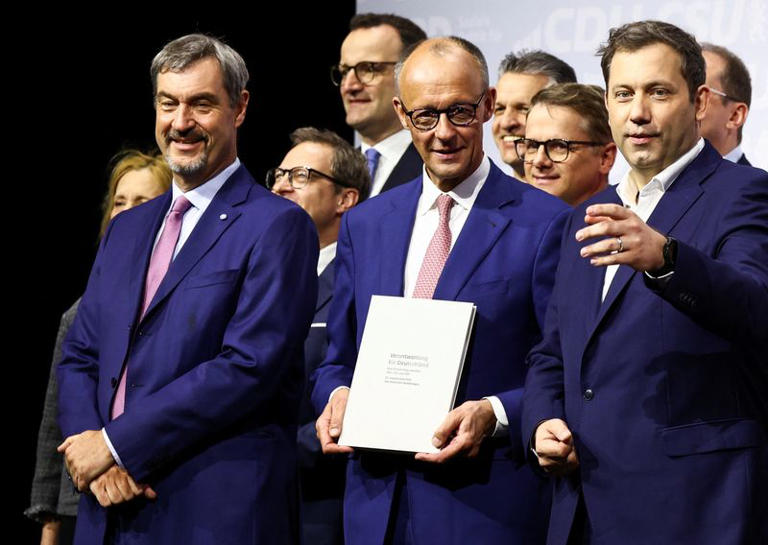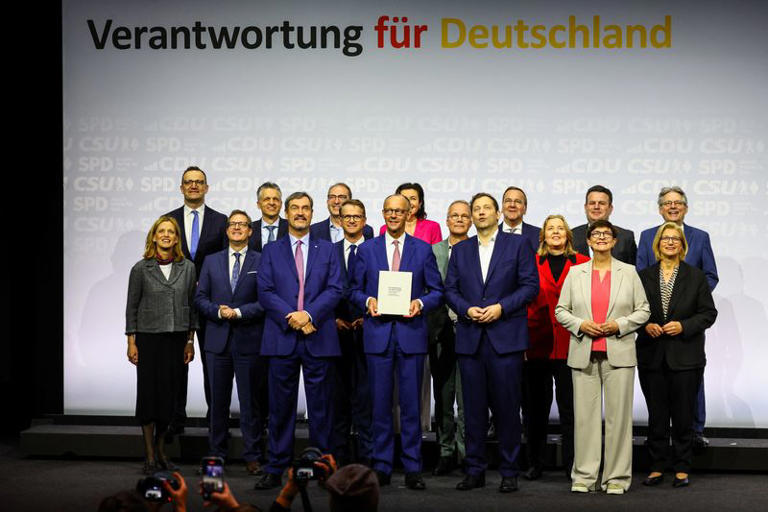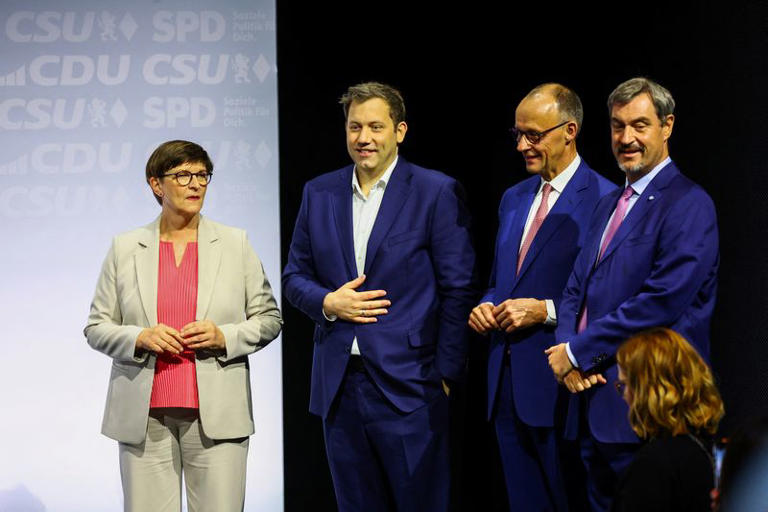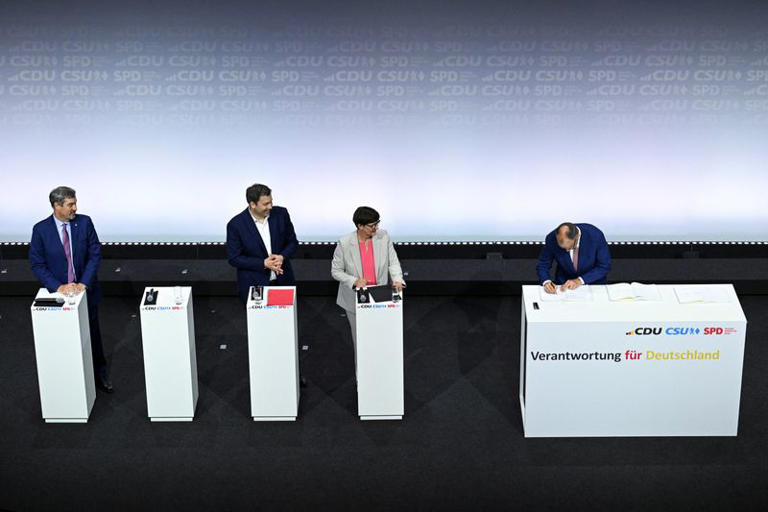Germany is set for a new government as the leaders of the country’s main centre-right and left parties signed off on a coalition deal.
The Christian Democratic Union (CDU), Social Democratic Party (SPD), and Bavaria-only Christian Social Union (CSU) signed the agreement setting out the government programme on Monday, May 5, 2025, almost six weeks after February’s snap election.
CDU leader Friedrich Merz is expected to be confirmed as Chancellor when the government is presented to parliament on Tuesday, May 6, 2025. “As of tomorrow, you will have a government that is determined to move Germany forward through reforms and investments,” Merz said.

He stated that his government’s voice would be “heard in Europe and in the world,” after the implosion last November of outgoing SPD Chancellor Olaf Scholz’s three-way coalition left a political vacuum at the heart of Europe.
SPD Co-chief, Lars Klingbeil said that the incoming government must help shape the new world order, or risk being “shaped by it.”
Earlier on Monday, the SPD unveiled its cabinet picks, a mix of fresh and well-known faces.
The SPD had already said last week that Klingbeil, 47, would take on the finance ministry.
Defence Minister Boris Pistorius, 65, is the only Minister who will keep his job in the new coalition after the SPD scored its worst ever result in the Feb. 23 national election.

Pistorius, Defence Minister since January 2023, is popular for his direct style and firm stance on national security.
He has said that Germany should be ready to face a war by 2029 due to threats from Russia – a bold statement in a country scarred by its own military aggression in the last century.
The SPD also nominated ex-Bundestag President Baerbel Bas, 57, as Labour Minister, former commissioner for eastern Germany Carsten Schneider, 49, to lead a new ministry for environment and climate protection, and former state secretary for integration Reem Alabali-Radovan, 35, as development minister.
Merz Vows To Reform Germany

At the signing ceremony, Merz, the Chancellor-in-waiting, pledged “strong, well-planned and dependable governance.”
“We live in times of profound change, of profound upheaval … and of great uncertainty, and that is why we know that it is our historic obligation to lead this coalition to success.”
Friedrich Merz
The SPD’s Lars Klingbeil, the designated Vice Chancellor and Finance Minister, said that the new government “needs real teamwork more than ever.” Klingbeil added, “We want to lead Germany back to where it belongs.”
The outgoing coalition government of SPD Chancellor Olaf Scholz collapsed on November 6, the day Trump was re-elected to the White House.
Scholz himself will not be part of the new cabinet but will stay on in parliament as a lawmaker.
The incoming government, agreed upon by the mainstream parties to isolate the far-right Alternative for Germany (AfD), which came second in the vote, inherits significant challenges.
Merz must lead a drive to revive Germany’s ailing economy – a task made all the more complicated by Russia’s invasion of Ukraine and United States President Donald Trump’s erratic policies on European security and global trade.
Merz has also promised to curb irregular migration in a clear nod to the rise of the AfD, which said on Monday that it had launched a lawsuit against its designation last week by Germany’s intelligence services as “extremist.”
The designation drew criticism from US officials. US Secretary of State, Marco Rubio branded it “tyranny in disguise.”
READ ALSO: Black Star Experience to Make Ghana Africa’s Cultural, Creative Powerhouse



















